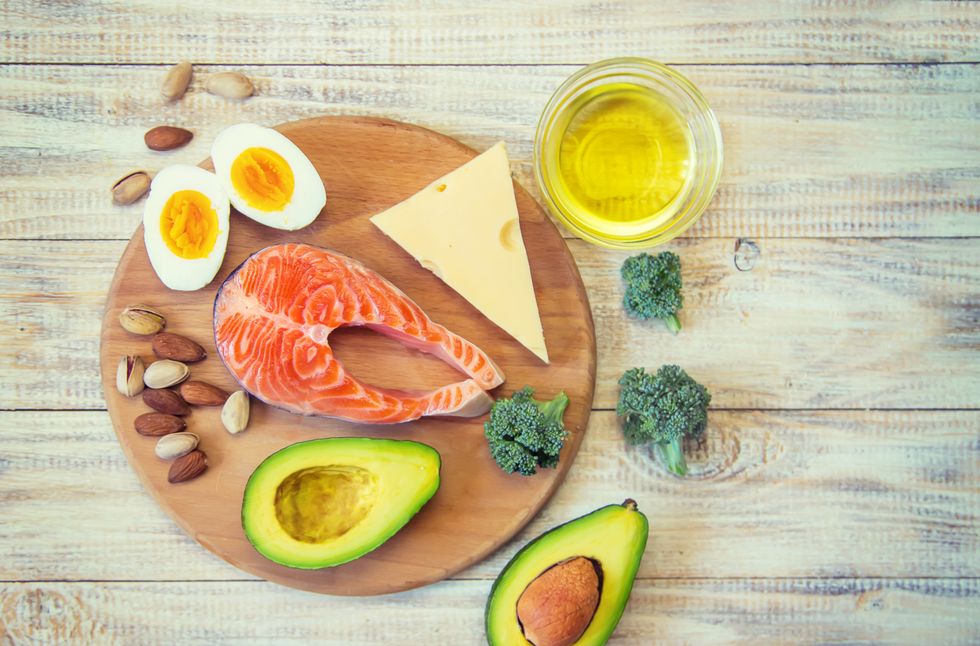Women told 4 key types of foods that can relieve symptoms during menopause
Women going through menopause will notice a decline in oestrogen levels and one thing they can do to support is to make crucial dietary changes.
Oestrogen acts as a ‘builder’ in women’s bodies, maintaining bone growth, muscles and hair thickness. As these levels drop during menopause, the body requires alternative sources of support.
Nutritional therapist at London Gynaecology, Laura Southern recommended focusing on four key nutritional areas to support hormone health during menopause.
These essential areas include protein, which provides building blocks for the body, and essential fats that help with hormone sensitivity and blood sugar balance.

Foods high in protein have been recommended by the expert
GETTY
Fibre plays a crucial role in supporting the microbiome and helping to process hormones effectively with the fourth area being phytoestrogens, which consists of plant compounds that can provide mild oestrogenic effects when the body’s natural oestrogen production decreases.
The expert said: “Phytoestrogens are plant compounds which fit onto our oestrogen receptors and exert a mild oestrogenic effect.
“These are important when the body reduces its own oestrogen production because it means there are still some protective oestrogenic effects on the body.
“Phytoestrogens are found in many plant foods but are particularly high in unprocessed soya products (edamame beans, tofu, miso), ground flaxseed, pomegranate seeds and berries.
“Adding a dessert spoon of ground flax to breakfast is an easy way to get a daily dose, as adding pomegranate seeds to yoghurt or salads.”
Laura explained the health benefits that come for women when adding these four things to their diets.
She said: “I advise my clients to keep a food and symptom diary to see if there is any correlation. Foods containing ‘phytoestrogens’ might be supportive here.
“When our body’s own hormone levels decline, these plant oestrogens can exert a mild oestrogenic effect providing a small level of protection. Phytoestrogen-rich foods include flax seeds, tofu, chickpeas and legumes.
“Dark green leafy vegetables are a very supportive food source for women with menopausal symptoms. They help support the gut microbiome which is essential for absorbing our nutrients, but also for our excretory pathways. This can support hormone balance.”

It is never too young to make these dietary changes
GETTY
The nutritionist said that she tells all of her clients that are over 40 it is never too late to make dietary changes and they should consider it for the health benefits they can feel.
She explained: “Food can be a vital factor in supporting certain menopause symptoms. A woman’s diet can greatly impact on her symptoms.
“The best thing, and what I stress all the time to all my clients over 40, is that it is never too young to start making positive changes.
“Studies have shown that including certain foods several years pre-menopause can reduce the severity of symptoms and even make menopause start later.
“The study looked at women who included more fish and vegetables, versus those who ate more processed food. The fish and vegetable cohort recorded less symptoms.”


Comments are closed.